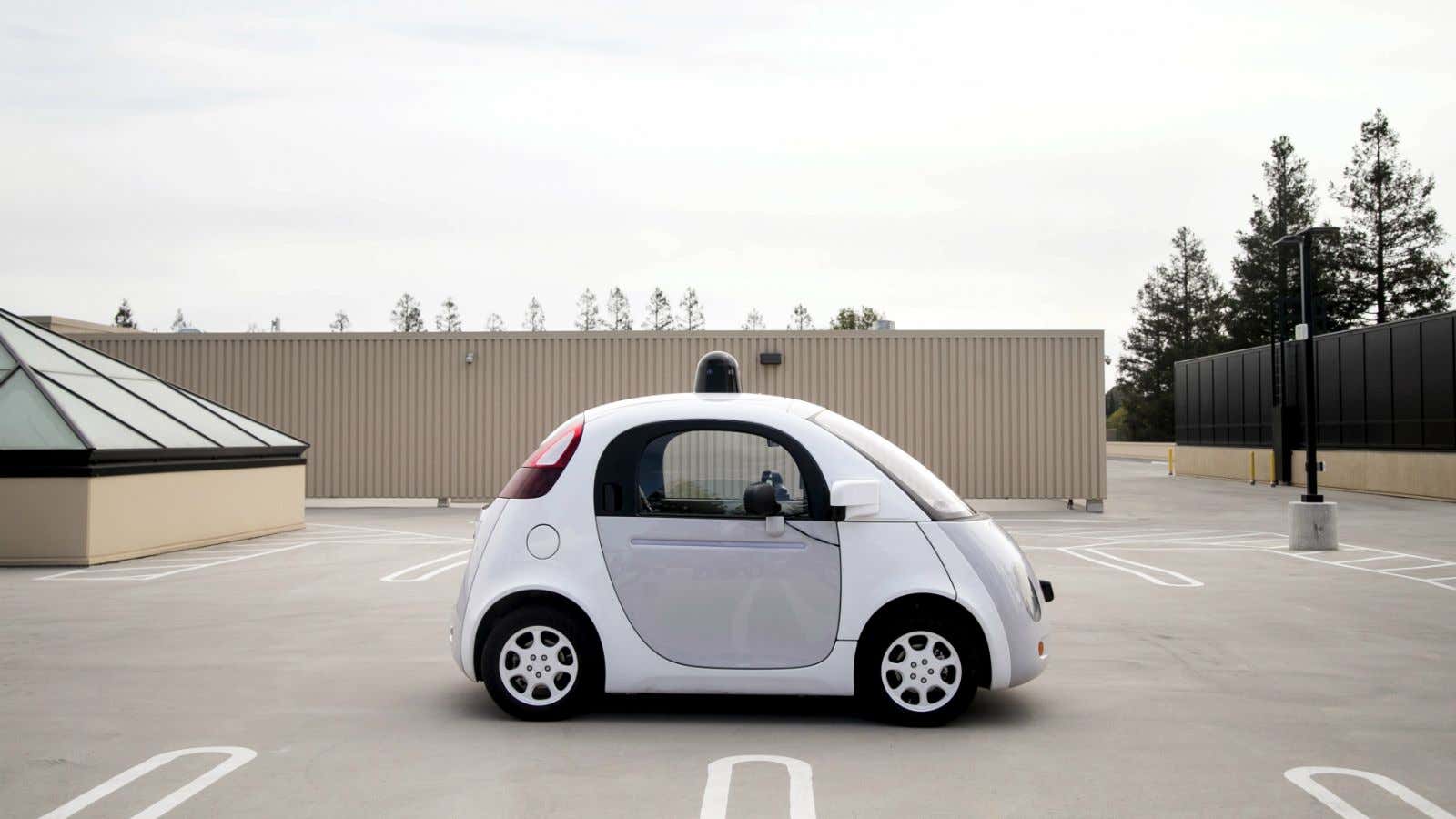The Florida resort destination better know for boy bands and Disney World is vying to become the self-driving car capital of the world. Orlando has a smooth plan for embracing the new technology: Turn the city into the globe’s largest test track, and give the tourist, defense and tech industries a chance to participate.
City officials haven’t set a timeline yet, but the stage has been set by some of the most welcoming laws in the US for autonomous vehicles, as well as central Florida’s selection by the U.S. Department of Transportation as one of 10 autonomous-vehicle proving grounds.
Orlando’s rollout is expected to start at Disney World’s Epcot theme park, built in the 1980s as a “prototype city” of the future, with an indoor demonstration in the next year or so. Street testing will occur on closed roads at NASA’s Kennedy Space Center, as well as at SunTrax, a 2.25-mile test track an hour southwest of downtown Orlando, when it opens this fall. Once the technology advances, Orlando plans to add automated shuttles and shared-use vehicles to its dedicated bus lanes. The University of Central Florida and Florida Polytechnic University will apply software-simulation expertise developed for the theme park industry to autonomous vehicles.
Orlando is not alone. Dozens of US cities are passing ordinances to attract driverless vehicles with the hope of reducing pollution, congestion and fatalities. Pittsburgh, San Diego, San Francisco, Los Angeles, Boston, and Beverly Hills are among those gearing up. Last year, 16 states introduced legislation related to autonomous vehicles, compared to just six in 2012. Michigan, Nevada, and California are close behind.
Americans, however, are still wary of self-driving vehicles. A survey by the American Automobile Association, which advocates for drivers, found most motorists want autonomous technologies in their cars. But 78% say they are ”afraid” to ride in a self-driving car, and only 10% feel safe sharing the roads with them.
Most self-driving cars still feature semi-autonomous systems, such as Tesla’s Autopilot, and require human oversight. The first death, of a Tesla driver in Florida, happened last year when his Model S struck a tractor-trailer. Autopilot failed to detect the white trailer against a bright sky.
Orlando has some experience getting novel technologies on the road. In 1992, the city partnered with Avis, GM and the Department of Transportation to test GPS navigation for rental cars. Orlando’s 60 million annual tourists would ultimately give it plenty of passengers to try out renting autonomous vehicles—if they’re willing to get in.
